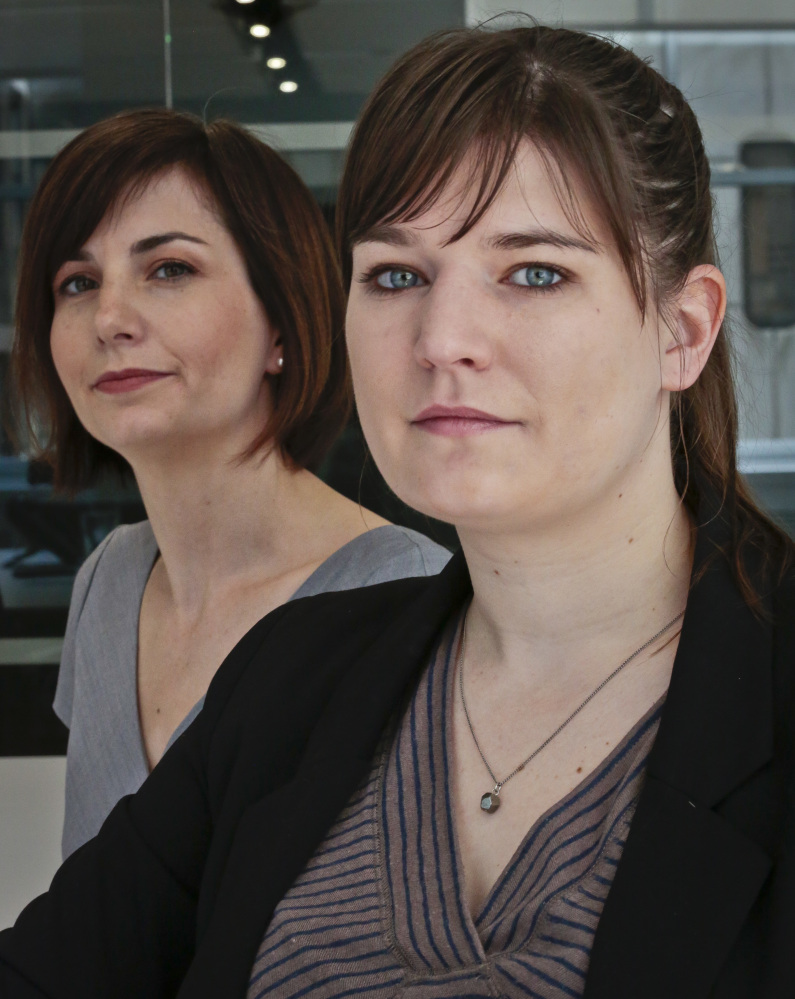NEW YORK — Margo Seibert and Natalie Brasington don’t think women should have to pay a “period tax,” and like a growing number of other women, they are publicly questioning whether being female in the U.S. carries unfair costs.
The pair are among five New York City women who filed a lawsuit last week arguing that it was unconstitutional for the state to levy sales tax on tampons and sanitary napkins while offering medical product exemptions to many other items used by both genders, like lip balm, foot powder and dandruff shampoo.
The case, they say, is about more than the few cents in tax levied on each pack.
Sick of the social taboo, and frustrated by a lack of access for some to a staple, these women and others are talking very publicly about menstruation and gaining political traction that would have been impossible a generation ago.
A national push to abolish sales tax on tampons is gathering steam, led by social media campaigns like (hash)periodswithoutshame. At least seven states are now considering legislation. Illinois lawmakers were holding a hearing on the latest proposal Wednesday. Connecticut legislators discussed the issue Monday.
Cosmopolitan magazine launched an online petition, and even President Barack Obama has questioned why the items are taxed.
“I tend to talk about my period quite a bit, to anyone who will listen,” said Seibert, a 31-year-old actress and founder of an online campaign that promotes a “shame-free” period.
Brasington, a 31-year-old photographer, said the tax affects women disproportionately and is a genuine burden for poorer women. “Being a woman is so expensive,” she said.
Jennifer Weiss-Wolf, a vice president at the NYU School of Law’s Brennan Center for Justice, said she began writing articles and op-eds on “menstrual equity” when she discovered food pantries were desperate for sanitary napkins and tampons because poor women can’t afford them.
The tax campaign reflects a broader debate over “gender pricing,” or charging women and men different rates for similar products and services, from haircuts to razors to T-shirts.
New York City’s consumer protection agency studied the cost of 800 common household items last year and found that products marketed to women cost, on average, 7 percent more than similar products for men.
“Women’s outcry over this issue isn’t just about the tax on tampons. It’s a reflection of the routine unfairness that seeps into our everyday lives,” said Sonia Ossorio, president of the National Organization for Women in New York. “At the end of the day, the tampon tax movement is one small way to challenge the broader sexism that still persists. Because that’s the real taboo here.”
While women’s advocates have long lamented that many women’s products cost more, their providers say there can be legitimate reasons – a more decorative product or more complicated haircut, for instance. And some have noted that women sometimes pay less: for life and auto insurance, for example.
Send questions/comments to the editors.



Success. Please wait for the page to reload. If the page does not reload within 5 seconds, please refresh the page.
Enter your email and password to access comments.
Hi, to comment on stories you must . This profile is in addition to your subscription and website login.
Already have a commenting profile? .
Invalid username/password.
Please check your email to confirm and complete your registration.
Only subscribers are eligible to post comments. Please subscribe or login first for digital access. Here’s why.
Use the form below to reset your password. When you've submitted your account email, we will send an email with a reset code.